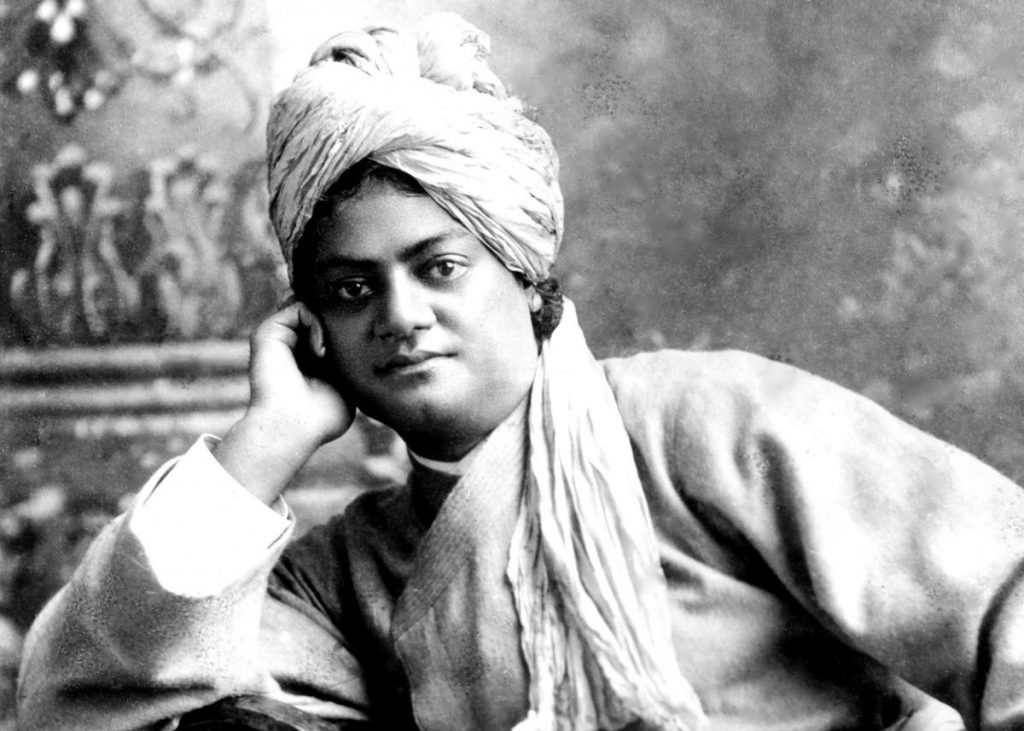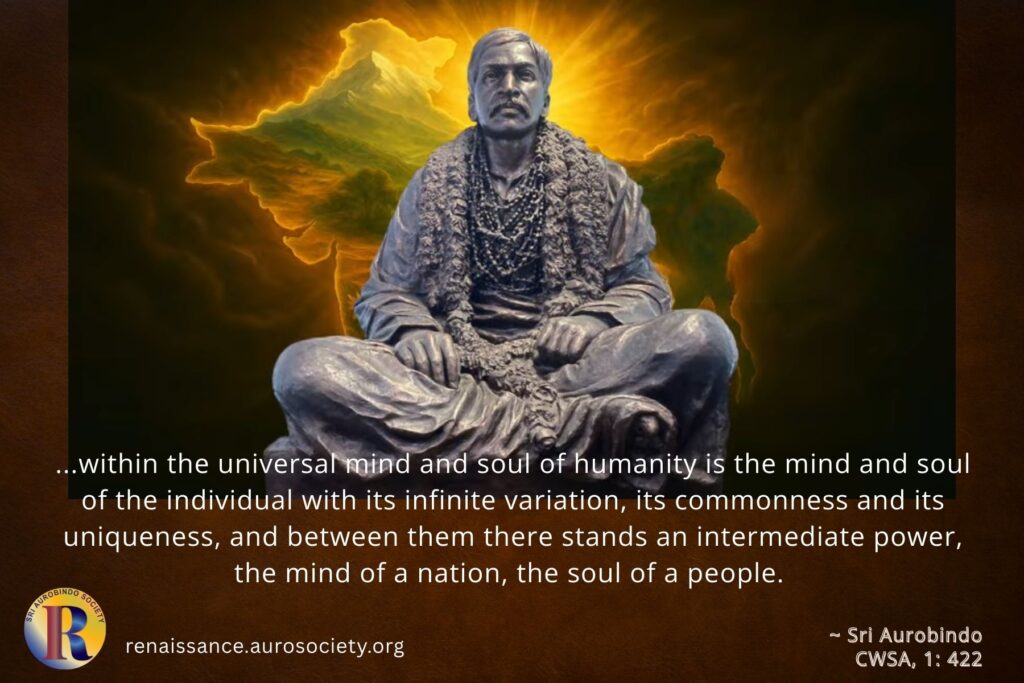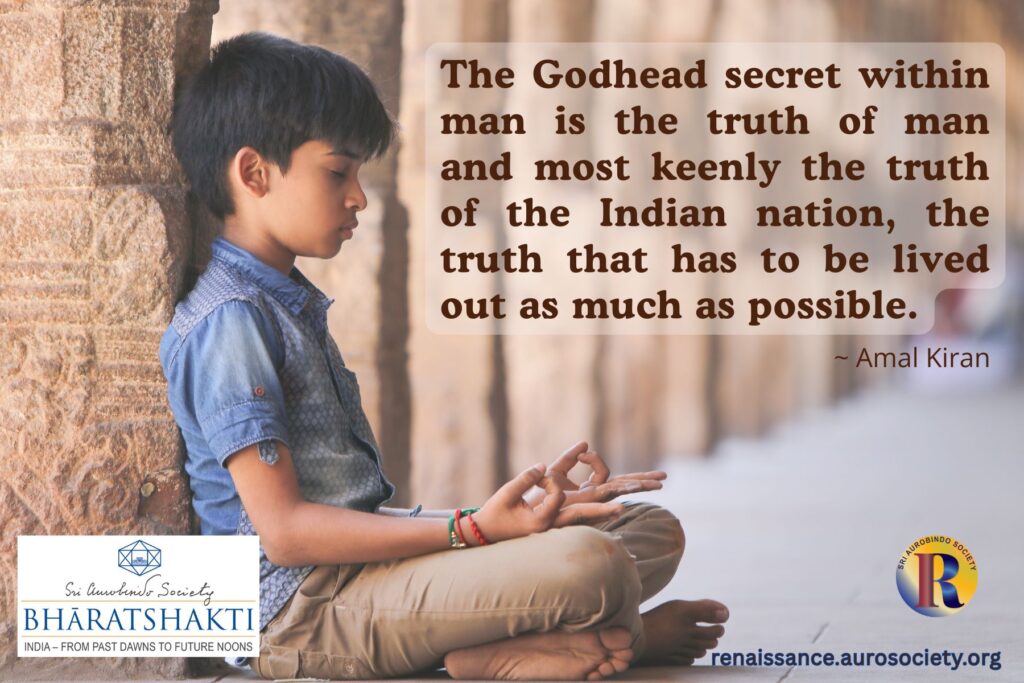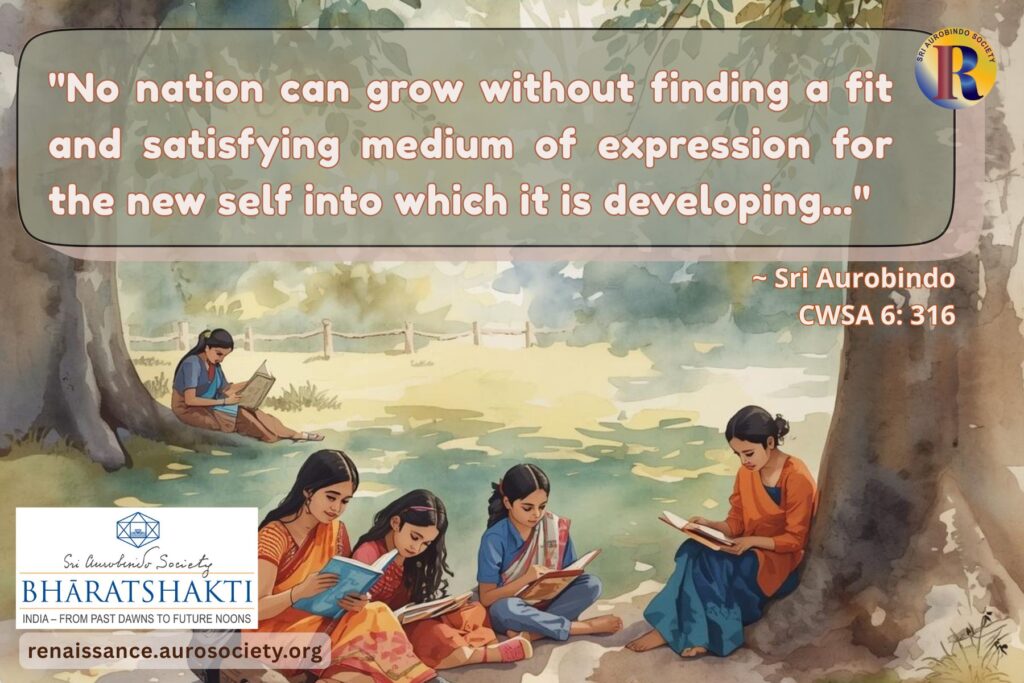Volume 1, Issue 3
Author: Sampadananda Mishra
Editor’s Note: This essay, presented in two parts, expounds on Swami Vivekananda’s views on character development and also briefly discusses the basic themes of his philosophy of man-making education in the light of practical Vedanta.

Introduction
Human existence is going through a crisis. The excessive emphasis on material gains, power and positions, and over-dependence on scientific and mechanical ways of life have led to depreciation of humanity to its lowest levels ever. Moral and spiritual values are constantly being undermined. Conflicting ideas, manners and habits are pervading the atmosphere. Education alone can show us the way out of this turmoil, Swami Vivekananda (1863–1902) often emphasized.
But for that to happen, education must first become truly holistic and rooted in the higher values. Education must be able to inculcate and develop ethics, ideals and values in the students so that they can conduct their life consciously and conscientiously. With just minimal intervention, the students should be able to decide what is right or wrong, what is good or evil and what is just or unjust, and act accordingly. Education therefore must help students to develop the courage to execute the right.
Swamiji laid stress on education for character development. He emphasised the need for a ‘life-building, man-making, character-making, nation-building’ education, and he prepared the scheme of this education in the light of his overall philosophy of Vedanta. He always believed that the development of a nation is not possible without real education.
Education is the process by which character is formed, strength of mind is increased and intellect is sharpened; and all of these provide immense strength to an individual. His ‘man-making’ education aims at producing a conscious population which is necessary for national development. He said that ultimately it is education that can provide solutions to all social, political and global problems. So he emphasized on awakening the individual to his or her spiritual self, which, he said, is the very purpose of education.
This essay, presented in two parts, expounds on Swami Vivekananda’s views on character development and also briefly discusses the basic themes of his philosophy of man-making education in the light of practical Vedanta.
Swamiji’s Educational Philosophy
Swami Vivekananda was probably among the first Indian thinkers to give a psychological and spiritual orientation to education and nation-building. His ideas and thoughts on education have been influenced by his philosophy of life, drawn from Vedanta.
According to Swamiji, the true and lasting foundation of nation-building should not be economics or politics but education. Also, this education should be ‘man-making’ education, with a predominant emphasis on building character, will-power and the power of concentration. Man-making, as he very often explained, means a harmonious development of the body, mind and soul. A true system of education must sincerely take care of an integral and harmonious growth of various parts within us.
It is disappointing that for a couple of centuries now, the modern system of education, in India and elsewhere, has, to a great extent, ignored the overall growth of personality.
As a result, most of us, even after extensive formal education, walk around with shrouded personalities, and are very often engaged in work that has no correspondence with our real genius and with our inner delight of existence. And thus we live in deep suffering, separated from ourselves. We need an education which helps in the blossoming of an all-encompassing personality; encourages perfection and integration of personal traits; develops character and intelligence, mental and spiritual powers; and instills self-confidence and self-reliance.
In Swami Vivekananda’s philosophy of education we find a reconciliation of the principles of education with that of the principles of Yoga.
Sri Aurobindo quotes Swami Vivekananda when he says that Yoga “may be regarded as a means of compressing one’s evolution into a single life or a few years or even a few months of bodily existence.” (CWSA, Vol. 23, p. 6)
Education too, in its deeper sense, is a rapid psychological progress towards perfection, a search for knowledge and values. It is also an uncovering, cultivating and perfecting the layers of human faculties and qualities. It is a process of the discovery of the self (as described in the Brihadaranyaka Upanishad, 2.4.5 – aatmaavaa are drashtavyah, mantavyah, shrotavyah, nididhyasitavyah), which aims at a true self-knowledge that can liberate from all kinds of bondage (saa vidyaa yaa vimuktaye, Vishnu Purana, 1.19.41).
Education in this sense is a search for that knowledge which would fulfill one, not only individually but also as a harmonious member of the universe.
A true system of education aims at bringing perfection that lies within every evolving soul. This is what Swami Vivekananda professed. This idea of bringing forth the ‘perfection within’ was the keynote of Swami Vivekananda’s thought on education (Complete Works of Swami Vivekananda [CWSV], 1989, 4:358). Here the question arises – what is meant by perfection? Is perfection an end by itself? Does it mean skilfulness or excellence?

What is Perfection?
Perfection in a higher sense is to grow conscious of and realize the soul’s own ever-perfect nature. The soul, the real essence within everyone, is perfect, but its ever-perfect nature is veiled by the imperfections and impurities of the faculties through which it can grow to its entirety. Which are these faculties that guide a soul to perfection?
The three major faculties are body, mind and intellect, which need to be honed and their full potentialities realized before they can work on a person’s soul. It is by strengthening and sharpening these endowments that the capacity to learn and absorb knowledge is possible. This is what, according to Swami Vivekananda, a true education does.
However, the modern system of education hardly pays any attention to the training of inner faculties and development of the senses. A closer look at the present system of education reveals that everyone is busy cutting trees with blunt instruments, chiselling away to create perfect ‘trophies.’ As a result, this system of education makes humans work and behave like machines.
True, holistic education must make the man a man, not a machine. Swamiji wanted education to be life-building, man-making and character-making (CWSV, 1989, 3:302; as also found in the Vedic dictum, manurbhava janaya divyam janam, Rigveda, 10.53.6). The purpose of this education is not just individual development but also the development of the nation.
What is Character?
Character-building is the perpetual challenge confronting everyone, individually and collectively. The word ‘character’ started appearing in various Western and European literature and self-improvement manuals and guides around the 17th century CE. It became more popular and peaked around the 19th century CE (Susman, 1984).
Susman writes that during the 1800s, character was a keyword in the vocabulary of Englishmen and Americans, and men were spoken of as having strong or weak character, good or bad character, a great deal of character or no character at all. Young people were admonished to cultivate real character, high character, and noble character, and they were told that character was the most priceless thing one could ever attain.
In the beginning of the 20th century, however, Susman found that the ideal of character began to be replaced by that of personality and the connotation of ‘character’ kept changing. In the course of time, character was defined not in terms of cultivation of virtues, but in terms of people’s hobbies, dress, and material possessions, etc.
This shift from ‘character’ to ‘personality’ was a shift from achievement to performance.
A person who performed well was considered to be a man with good personality irrespective of whether he carried any higher virtues or soul values. Further, the notion of character was split into good and bad, personality into famous and infamous, so that in a culture of personality one could be famous without having done anything to earn it.
The words most associated with character in the 19th century were ‘citizenship, duty, democracy, work, building, golden deeds, outdoor life, conquest, honour, reputation, morals, manners, integrity, and above all, manhood’, while the words most associated with personality in the 20th were ‘fascinating, stunning, attractive, magnetic, glowing, masterful, creative, dominant, and forceful’. This was mostly the idea about character and personality in the West during 19th and 20th centuries.
But the word ‘character’ has a different connotation for the visionaries of India.
Character is understood as an accumulation of habits. Repeated habits form character. Repetition—repeated thinking of a thought or performing of an action— creates what we call character. It is an outcome of experience, thoughts, actions, reactions and responses to life’s events. According to Swamiji, a human character is nothing but the aggregate of an individual’s tendencies, the sum total of his or her bent of mind. A well-known maxim about character-building says: Sow a thought, reap an action. Sow an action, reap a habit. Sow a habit, reap your character. And sow character and reap your destiny.
As per the Vedantic tradition, we are what our thoughts have made us [1]. While speaking on Karmayoga, and especially about the samskaras or ‘inherent tendencies’ in the Vedantic perspective, Swamiji explains:
Every work that we do, every movement of the body, every thought that we think, leaves such an impression on the mind-stuff, and even when such impressions are not obvious on the surface, they are sufficiently strong to work beneath the surface, subconsciously.
What we are every moment is determined by the sum total of these impressions on the mind. What I am just at this moment is the effect of the sum total of all the impressions of my past life. This is really what is meant by character; each man’s character is determined by the sum total of these impressions. If good impressions prevail, the character becomes good; if bad, it becomes bad.
(CWSV, 1989, 1:27)
In other words, if the sum total of these impressions is negative, it creates a negative character; and if it is positive, it creates the positive character. The aim of education is to build positive character in humans, made of uplifting qualities such as courage, compassion, kindness, etc.
Is it Really Possible to Change One’s Character?
One important question arises whether character is inherited or subject to change. It is necessary to have clarity on this issue as it is essential to the whole process of character-building. According to Swamiji, the nature of a person at birth does have a role to play. He once said, “One child is born of a divine nature, another of a human, others of lower character” (CWSV, 1989, 9:325).
While parentage and formative period of one’s life do cast an influence on one’s character, every human being has an opportunity to change himself. He has a choice and can transform himself for better or for worse. This has been the teaching of all spiritual and religious scriptures. If past actions have played a role in making our present character, it naturally follows that our future character will be determined by what we do now. Everyone has the potential to change himself.
The first step towards this change is that one must be convinced that one can change and that change is required.
Without this conviction the very process of changing oneself would not take place. Further, once this conviction is there, one must will to change and be strong in one’s conviction till the change takes place. At the foundation of character-building is this will-power which needs to be trained.
In addition, one should become the master of oneself instead of becoming a slave to senses and mind or thoughts. This is an inner training wherein the buddhi or the intelligence has to be strengthened and re-educated. It has to learn to control the senses and the mind, and not be controlled by them. Character-building is at the very core of self-development. Swami Vivekananda says:
He who has succeeded in attaching or detaching his mind to or from the centres at will has succeeded in Pratyahara, which means, ‘gathering towards,’ checking the outgoing powers of the mind, freeing it from the thraldom of the senses. When we can do this, we shall really possess character; then alone we shall have taken a long step towards freedom; before that we are mere machines.
(CWSV, 1989, 1:140)
This freedom, according to Swamiji, is the only condition for growth (CWSV, 1989, 5:18). In the process of evolution, the child must experience a free and natural growth and that is the condition for a genuine development. Since education is a creative process, and since creativity and compulsion cannot go together, freedom has to be a very important instrument in education.
But this freedom should not lead the child to become a svecchaachaarin or hypocrite. This demands inculcation of discipline. Without discipline it is impossible to realize anything. How do we then bring a synthesis between freedom and discipline?
The ideal condition is obtained when discipline becomes the choice of a child, and discipline is transformed into self-discipline. And it is then that the real character of an individual is formed. Discipline cannot be imposed artificially. Nor does it emerge spontaneously except in a few rare cases. We have to nurture it. This nurturing is the process of building character. In this nurturing, one has to take care of one’s svabhava and svadharma (one’s innate nature and own law of being). Nothing must be done as a compulsion.
How to Build Character?
According to Swami Vivekananda, character is shaped by karma. In his insightful words:
Karma in its effect on character is the most tremendous power that man has to deal with. Man, as it were, is a centre, and is attracting all the powers of the universe, towards himself. Good and bad, misery and happiness, all are running towards him and clinging round him, and out of them he fashions the mighty stream of tendencies called character and throws it outwards.
(CWSV, 1989, 1:26)
Therefore, one has to take care of one’s karma in order to build a good character, for which one has to avoid all that can create bad impressions and imbibe those values that can build good character.
Swamiji explains:
If a man continuously hears bad words, thinks bad thoughts, does bad actions, his mind will be full of bad impressions; and they will influence his thought and work without his being conscious of the fact. In fact, these bad impressions are always working, and their resultant must be evil, and that man will be a bad man; he cannot help it.
The sum total of these impressions in him will create the strong motive power for doing bad actions. He will be like a machine in the hands of the impressions, and they will force him to do evil. Similarly, if a man thinks good thoughts and does good works, the sum total of these impressions will be good; and they, in a similar manner will force him to do good even in spite of himself.
When a man has done so much good work and thought so many good thoughts there is an irresistible tendency in him to do good, in spite of himself and even if he wishes to do evil, his mind, as the sum total of his tendencies, will not allow him to do so; the tendencies will turn him back; he is completely under the influence of the good tendencies.
When such is the case, a man’s good character is said to be established.
(CWSV, 1989, 1:46)
By character Swamiji also meant strengthening of the will (CWSV, 1989, 2:286).
A well-trained will-power to be straightforward, fearless and honest, coupled with sincerity to act and even to fight nobly and courageously in order to embody in one’s own life and in the life of the society all that is true and all that can foster solidarity and unity leads to an uplift in humanity as a whole.
The will-power plays a great part in character-building. The will is strengthened through repeated practices (abhyaasa). Repetition brings out the potential muscles. It is a process that works inside-out, a process of manifesting the perfection that is already within. Moreover, the will-power becomes feeble when an individual yields to every little tendency, inclination and fancy he has; but when he fights against every little desire, propensity and penchant, he learns to fight with himself, and in this way he develops will-power.
If a person’s weaknesses and inability to counter his faults grow stronger than his will-power, he experiences in his life several enemies existing in his own self, and he finds it difficult to combat them.
This is because inclinations, fancies and tendencies, when powerful, do not let will-power work against them. By practicing self-denial (or vairaagya, a sense of non-attachment) along with self-control and self-discipline, in time an individual attains a power which may be called ‘mastery over oneself.’
Training the will means training or controlling the senses, desires and the mind, and not be controlled by them. It is most necessary that one should learn how to face the world—the world where one experiences sorrows and troubles, pleasures and pains. It is very difficult for one to hide from the world, and at the same time a prudent person is not meant to show all he feels or to show at every moment what he feels.
An uncontrolled person, like a machine, reacts and responds to every outer influence and inner impulse; and in this way loses the gift that he or she has received in the human spirit, senses and sensibilities.
According to Swamiji, character formation requires traits such as purity, thirst for knowledge, hard work, perseverance, faith, humanity, submission and veneration. Character development, in the first place, refers to the existence of a heroic will. One must instill in oneself this heroic determination and spirit, to become free from all fears and all that weakens the spirit.
Swami Vivekananda always inspired the youths to emerge as heroes. He used to encourage and exhort the youth by saying, “Be a hero. Always say, ‘I have no fear. Tell this to everyone—’Have no fear.’ (CWSV, 1989, Vol. 7, p.136).
We find this same truth expressed in the Bhgavad Gita, (Chapter 2, verse 3):
क्लैब्यं मा स्म गमः पार्थ नैतत्त्वय्युपपद्यते।
क्षुद्रं हृदयदौर्बल्यं त्यक्त्वोत्तिष्ठ परन्तप॥
klaibyaṁ mā sma gamaḥ pārtha naitattvayyupapadyate,
kṣudraṁ hṛdayadaurbalyaṁ tyaktvottiṣṭha paraṁtapa.
“Fall not from the virility of the fighter and the hero, O Partha! it is not fitting in thee. Shake off this paltry fainthearted-ness and arise, O scourge of thine enemy!”
Along with being heroic and strong, one also needs to inculcate wisdom. One has to have the knowledge—the knowledge of oneself and of the world. It is by knowing oneself that one can develop love and compassion for others. Developing compassion and universal love is another important aspect of character development.
Swamiji points out:
“Religions of the world have become lifeless mockeries. What the world wants is character. The world is in need for those whose life is one burning love, selfless. That love will make every word feel like thunderbolt.” (CWSV, 1989, 7:305)
A man of character has to be a man of action, of competence, of chiselled skill, of untiring labour and of love for one and all. Great work requires great and persistent effort for a long time. Character has to be established through a thousand stumbles. But one needs to persist despite of numerous failures. A well-developed character is an integrated and harmoniously developed personality.
Continued in Part 2…
Notes
[1] BrihadAranyaka Upanishad, 4.4.5 – ‘As your desire is, so is your will. As your will is, so is your deed. As your deed is so is your destiny.’
yo yathaakaamo bhavati tatkraturbhavati.
yatkraturbhavati tatkarma kriyate.
yatkarma kriyate tadabhisampadyate.
Cover image: Swami Vivekananda, circa 1900. Photo available in public domain.



